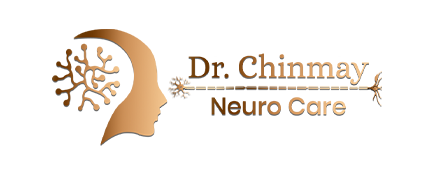Alzheimer’s disease is a progressive brain disorder that affects memory, cognition, and behavior. It is the leading cause of dementia, impacting millions of people globally. While its exact cause remains unknown, advancements in medical science have improved our understanding of the disease. This blog provides insights into Alzheimer’s disease, its causes, symptoms, stages, and available treatment options, with expertise shared by Dr. Chinmay of Dr. Chinmay’s Neuro Care Clinic, Balewadi-Baner, Pune.
What is Alzheimer’s Disease?
Alzheimer’s disease is a degenerative brain disorder primarily seen in older adults. It is characterized by the accumulation of abnormal proteins in the brain, leading to the death of nerve cells. This damage disrupts brain function, gradually affecting memory, cognition, and essential life skills.
Causes of Alzheimer’s Disease
The exact causes of Alzheimer’s are not entirely understood, but several factors are believed to contribute:
- Genetics: A family history of Alzheimer’s may increase the risk due to specific genetic mutations.
- Age: Advancing age is the most significant risk factor. The majority of people with Alzheimer’s are aged 65 or older.
- Lifestyle and Heart Health: Poor cardiovascular health, including high blood pressure, obesity, and diabetes, may elevate the risk.
- Brain Injuries: Past traumatic brain injuries can contribute to the likelihood of developing the disease.
- Environmental Factors: Exposure to toxins or poor education and social engagement might play a role in some cases.
Symptoms of Alzheimer’s Disease
Symptoms of Alzheimer’s vary by individual but typically worsen over time. Key symptoms include:
- Memory loss: Difficulty recalling recently acquired information, significant dates, or events.
- Cognitive Decline: Difficulty solving problems, planning, or following familiar tasks.
- Language Problems: Trouble finding the right words or maintaining conversations.
- Disorientation: Confusion about time, place, and even recognizing familiar faces.
- Mood and Personality Changes: Increased anxiety, depression, or aggression.
- Physical Decline: Difficulty walking, swallowing, or performing daily activities in later stages.
Stages of Alzheimer’s Disease
Alzheimer’s progresses through three main stages:
- Early Stage (Mild):
- Subtle memory lapses, like forgetting names or recent conversations.
- Trouble finding words or misplacing objects.
- Independence remains largely intact.
- Middle Stage (Moderate):
- Significant memory loss and confusion.
- Behavioral changes, such as irritability or wandering.
- Difficulty recognizing family members.
- Dependence on others for daily activities increases.
- Late Stage (Severe):
- Loss of communication abilities.
- Full dependency on caregivers for personal care.
- Physical complications like difficulty swallowing or controlling movements.
Diagnosis of Alzheimer’s Disease
Early diagnosis is crucial to manage the progression of Alzheimer’s effectively. At Dr. Chinmay’s Neuro Care Clinic, Balewadi-Baner, Pune, a comprehensive approach is used for diagnosis, including:
- Medical History: Reviewing symptoms, family history, and risk factors.
- Cognitive Tests: Assessing memory, problem-solving, and other mental abilities.
- Imaging: MRI or CT scans to detect brain shrinkage or other abnormalities.
- Blood Tests: To rule out other conditions that might mimic Alzheimer’s symptoms.
Treatment Options for Alzheimer’s Disease
Currently, there is no cure for Alzheimer’s, but treatments aim to manage symptoms and improve quality of life. Options include:
- Medications:
- Cholinesterase Inhibitors: Improve communication between nerve cells (e.g., Donepezil).
- Memantine: Regulates glutamate to reduce symptoms in moderate to severe cases.
- Lifestyle Modifications:
- Healthy diet (Mediterranean diet).
- Regular physical activity.
- Mental stimulation through reading, puzzles, or social interaction.
- Therapies:
- Cognitive Behavioral Therapy (CBT): Helps manage mood and behavior.
- Occupational Therapy: Enhances safety and independence in daily activities.
- Caregiver Support:
- Training and resources to help caregivers manage the challenges of Alzheimer’s care.
- Emotional support and respite care services.
- Emerging Treatments:
- Ongoing research into immunotherapy and gene therapy offers hope for future breakthroughs.
Prevention and Risk Reduction
While Alzheimer’s cannot always be prevented, adopting a healthy lifestyle can lower risk:
- Maintain a heart-healthy diet.
- Stay mentally active with continuous learning.
- Engage in regular exercise.
- Control chronic conditions like hypertension and diabetes.
- Stay socially connected to reduce isolation and depression.
Why Choose Dr. Chinmay’s Neuro Care Clinic in Pune?
Dr. Chinmay is a renowned neurologist specializing in Alzheimer’s disease and other neurological disorders. Focusing on patient care and equipped with cutting-edge facilities, Dr. Chinmay’s Neuro Care Clinic, located in Balewadi-Baner, Pune, provides:
- Accurate diagnosis and personalized treatment plans.
- Advanced neurological care with the latest technologies.
- Supportive resources for patients and caregivers.
Summary
Alzheimer’s disease is a complex neurological condition that affects millions globally. Understanding its causes, symptoms, and stages is vital for early intervention. While there is no cure, treatments can help manage symptoms and improve quality of life. Dr. Chinmay’s Neuro Care Clinic in Balewadi-Baner, Pune, offers expert care for Alzheimer’s patients, ensuring compassionate and comprehensive support for both patients and caregivers.



